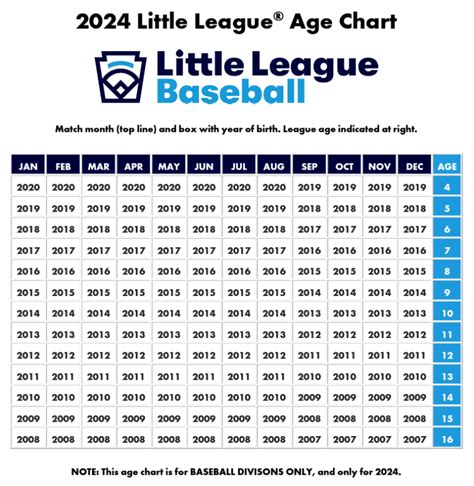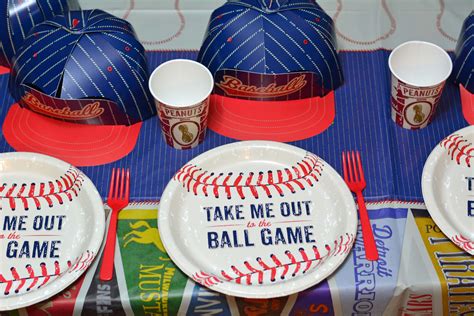Discover essential tips for choosing youth baseball leagues, necessary gear, rules, benefits, and how to support your child’s baseball journey.Are you ready to nurture your child’s love for baseball and help them develop essential skills on and off the field? Joining a youth baseball league can be an exciting step for both parents and players alike. This comprehensive guide will walk you through everything you need to know to get started, from choosing the right league tailored to your child’s interests and abilities to understanding the essential gear required for young athletes. We’ll also delve into the structure and rules of youth baseball, the myriad benefits of participation, and how you can best support your child on their baseball journey. With the right resources and knowledge, you can help your child hit a home run in their youth baseball experience!
Choosing The Right Youth Baseball League For Your Child
Finding the right Youth Baseball league for your child can significantly impact their experience and development in the sport. Here’s a guide to help you make an informed decision:
- Age Group and Skill Level: Different leagues cater to various age groups and skill levels. Be sure to select a league that matches your child’s abilities. Some leagues focus on beginner players, while others may be more competitive.
- League Structure: Consider whether the league is recreational or travel-based. Recreational leagues often prioritize fun and skill development, while travel leagues may have a higher level of competition and commitment.
- Location: Proximity to home is vital. A league that is too far away could add stress to both you and your child, impacting attendance and overall enjoyment.
- Coaching Philosophy: Research the coaching staff and their approach to teaching Youth Baseball. A positive, encouraging environment is key for developing a love for the game and essential skills.
- Parent Involvement: Some leagues require a higher degree of parental involvement, which can be beneficial for building a community but may not be suitable for everyone. Determine your comfort level before making a choice.
- Reviews and Recommendations: Seek feedback from other parents and players about their experiences with various leagues. Local community boards and social media can also provide valuable insights.
- Cost: Assess the registration fees, equipment requirements, and any additional costs associated with the league. Make sure the expenses fit within your budget while still providing a quality experience for your child.
- Commitment Level: Understand the time commitment expected for practices, games, and tournaments. Make sure it aligns with your family’s schedule and your child’s ability to balance sports with other responsibilities.
The right Youth Baseball league will foster your child’s growth, enjoyment, and love for the game. Take the time to evaluate each option carefully, ensuring that it aligns with your family’s values and your child’s interests.
Essential Gear For Young Players In Youth Baseball
Equipping your child with the right gear is crucial for their safety and success in Youth Baseball. Here’s a comprehensive list of essential items that young players need:
- Youth Baseball Bat: Choose a bat that is the appropriate length and weight for your child. Check league regulations for bat specifications.
- Baseball Glove: Select a glove that fits comfortably and is made from quality materials. The glove size often depends on the player’s age and position.
- Baseball Helmet: A helmet protects young players during batting and base running. Make sure it has the right fit and features face protection.
- Cleats: Proper footwear enhances traction on the field. Look for cleats designed for baseball, with the appropriate spike configuration.
- Protective Gear: Consider additional protective items like a cup for boys and a throat guard for catchers to safeguard against injuries.
- Practice Balls: Having a supply of quality practice balls helps your child improve their skills in throwing, catching, and batting.
- Training Equipment: Items like batting tees, pitchbacks, and agility cones can aid in skill enhancement and overall development.
Investing in the right gear not only ensures your child’s safety but also contributes to their enjoyment of the game. With the correct equipment, they can focus on learning the fundamentals and having fun in Youth Baseball.
Understanding The Rules And Structure Of Youth Baseball
To fully appreciate and enjoy the game, it’s crucial for parents and players to understand the rules and structure of Youth Baseball. This foundation forms the basis for skill development, sportsmanship, and enjoyment of the game.
The rules in youth baseball can vary significantly based on the league, age group, and level of play. However, there are some common aspects that are generally applicable across most youth baseball programs:
Understanding these rules can help parents and players navigate the league more effectively, encouraging a positive experience for all participants. Engaging in a supportive community of Youth Baseball can further foster a love for the game and camaraderie among teammates, creating lifelong memories and skills.
Benefits Of Participating In Youth Baseball Programs
Participating in Youth Baseball programs offers a myriad of advantages that go beyond just learning how to play the game. Here are some key benefits:
- Physical Fitness: Engaging in Youth Baseball promotes physical activity, helping children to enhance their strength, speed, and coordination. Regular practice and games contribute to an active lifestyle.
- Teamwork and Social Skills: Playing in a team setting fosters communication, collaboration, and respect among peers. Kids learn to work together towards common goals and develop friendships that can last a lifetime.
- Discipline and Commitment: Youth baseball instills a sense of discipline, as players must attend practices and games regularly. This teaches responsibility and the importance of commitment, skills that are valuable throughout life.
- Confidence Building: Through overcoming challenges on the field, such as striking out or missing a catch, children develop resilience and self-confidence. Celebrating successes, whether individual or team-oriented, further boosts their self-esteem.
- Understanding Sportsmanship: Youth baseball emphasizes fair play and respect for opponents and officials, instilling a sense of integrity that is crucial both in sports and in everyday life.
- Emotional Development: Through the ups and downs of competition, children learn to handle victory graciously as well as cope with loss, contributing to their emotional maturity.
- Life Skills: Beyond the game itself, participating in Youth Baseball helps children develop time management skills and learn how to balance academics with athletics, preparing them for future responsibilities.
Overall, the benefits of participating in Youth Baseball programs extend far beyond just improving baseball skills. They play a significant role in the holistic development of young players, equipping them with important life skills that contribute to their growth into well-rounded individuals.
How To Support Your Child’s Journey In Youth Baseball
Supporting your child’s journey in youth baseball is essential for their enjoyment and development in the sport. Here are some effective ways to provide the encouragement and backing they need:
- Attend Games and Practices: Make it a priority to attend as many games and practices as possible. Your presence will boost your child’s confidence and reinforce the importance of their commitment.
- Encourage Team Spirit: Teach your child about the value of teamwork and sportsmanship. Celebrate their achievements and encourage them to support their teammates, fostering a positive environment.
- Limit Pressure: While it’s important to encourage skill improvement, avoid putting excessive pressure on your child to perform. Focus on enjoyment and personal growth rather than solely on winning.
- Introduce Training at Home: Encourage your child to practice their skills at home. Simple drills, batting practice, or catching sessions can enhance their abilities and show your support for their passion.
- Engage with Coaches: Communicate with coaches to understand your child’s progress and areas for improvement. A good relationship with coaches can provide valuable insights into how to best support your child.
- Be Positive: Always maintain a positive attitude about the game, irrespective of outcomes. Encourage discussions about what your child enjoys and what they’ve learned from their experiences.
- Provide Necessary Gear: Ensure your child has access to the necessary gear and equipment to play comfortably and safely in youth baseball. This shows your investment in their interests.
- Encourage Friendships: Promote friendships among teammates to create a supportive network. Social engagement can enhance their experience and enjoyment of the sport.
By actively participating in your child’s journey and demonstrating support and understanding, you can significantly enhance their experience in youth baseball, leading to a fulfilling and enjoyable time in the sport.
Frequently Asked Questions
What age group typically participates in youth baseball leagues?
Youth baseball leagues generally cater to children aged 4 to 18, with different divisions designed for various age brackets.
What are the basic requirements to join a youth baseball league?
Typically, children need to register with their local league, provide basic information and pay any necessary fees. Some leagues may also require parental consent.
How can parents find a youth baseball league in their area?
Parents can find local youth baseball leagues by searching online, checking community centers, or visiting the official websites of organizations like Little League Baseball.
What skills are taught in youth baseball leagues?
Youth baseball leagues focus on teaching fundamental skills such as batting, fielding, base running, and teamwork, along with promoting good sportsmanship.
What equipment is necessary for children to play in youth baseball leagues?
Essential equipment includes a glove, bat, baseballs, and a proper pair of cleats. Some leagues provide uniforms and helmets.
Are there any fees associated with joining youth baseball leagues?
Yes, many youth baseball leagues charge registration fees to cover costs such as equipment, field maintenance, and umpire fees.
How can parents support their child’s experience in youth baseball leagues?
Parents can support their children by attending games, encouraging practice at home, volunteering with the league, and fostering a positive attitude towards sports.









